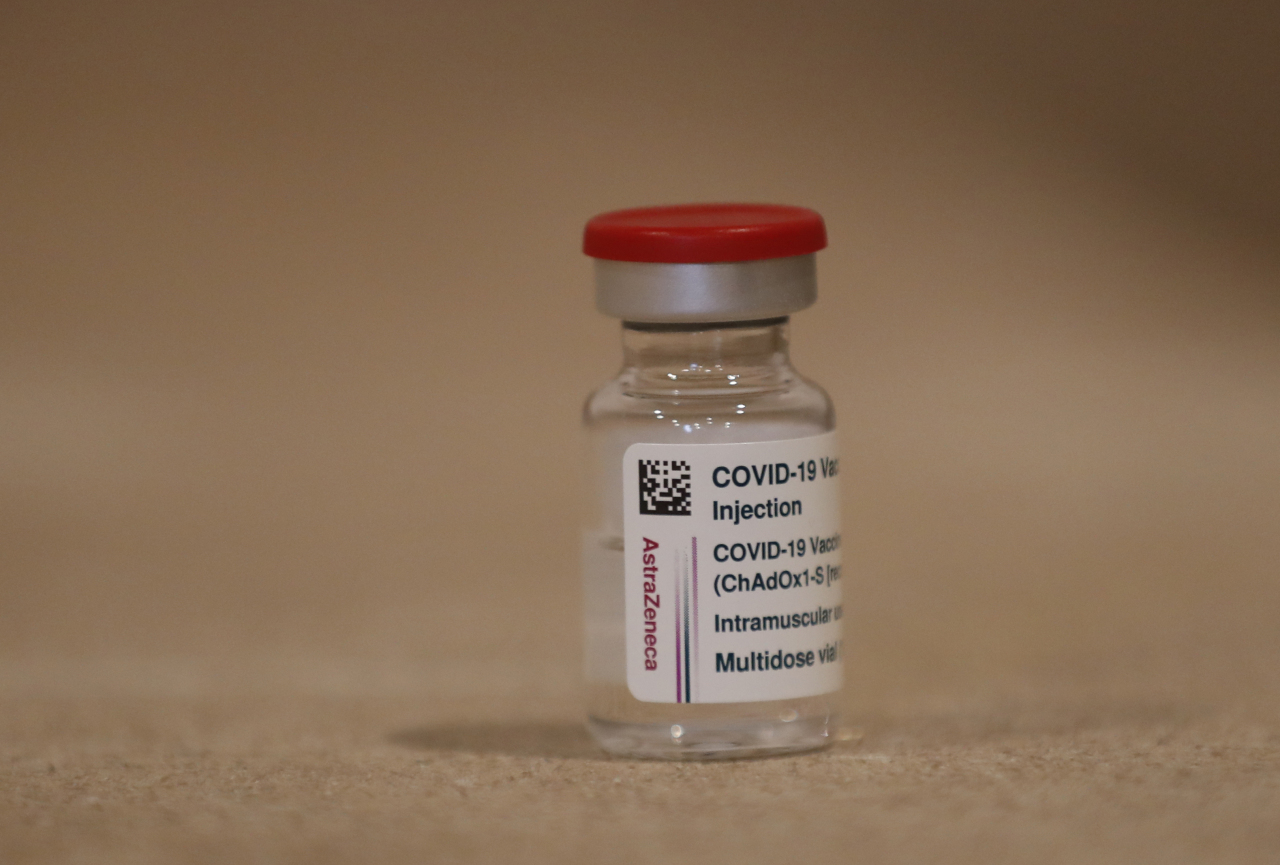Korea stands by AstraZeneca vaccine, but ‘may exercise caution’
KDCA says AZ jabs used here locally produced, different from ones used in Europe
By Kim ArinPublished : March 17, 2021 - 15:51

South Korea said Wednesday it may halt the use of the AstraZeneca COVID-19 vaccine based on regulator decisions in Europe and other emerging findings here and abroad.
The Korea Disease Control and Prevention Agency told reporters in a closed-door briefing that as more countries in Europe and elsewhere shelve the vaccine over unconfirmed blood clot fears, the agency “may take precautionary steps.”
The Korean national health agency said it was “closely monitoring” the AstraZeneca suspensions in European countries, and that it may pause the vaccine’s rollout here depending on the results of the European Medicines Agency’s investigations slated for announcement Thursday.
The European Union regulator said in an online statement Monday that it would be calling an extraordinary meeting over reports of blood clots this week to “conclude on the information gathered and any further actions that may need to be taken.”
Korea “may exercise some caution” with the AstraZeneca vaccine, the KDCA told reporters the following day on Tuesday.
“But from what we know so far, the vaccine should continue to be used,” said the agency. “The AstraZeneca COVID-19 shots administered in Korea are produced at a local plant, so they are different from the batches used in Europe.”
The agency said there is “no evidence the AstraZeneca vaccine causes blood clots,” and that the drug regulation authorities found “no such issues over the course of the rigorous testing before granting approval.”
On Wednesday, Korea also confirmed a suspected case of fatal blood clotting in a person inoculated with an AstraZeneca shot. Although postmortem examinations are still underway, no link to the vaccine is suspected, according to Jung Eun-kyeong, the Korea Disease Control and Prevention Agency commissioner.
Jung told a parliamentary committee for health and welfare Wednesday morning that one of the suspected adverse events in Korea with a fatal outcome had involved blood clots.
The woman who had blood clots was in her early 60s and chronically ill, according to the KDCA brief later the same day. She was given her first AstraZeneca vaccine dose on Feb. 26, and died about a week later on March 6.
Prior to this point, the KDCA had refused to say whether there had been any reports of possible adverse events related to blood clots despite press inquiries. The case Jung mentioned is at least three days old, as there have been no new reports of deaths among vaccine recipients since Sunday.
As of Tuesday at midnight, 587,996 people in Korea received the first of two doses of the AstraZeneca vaccine. About 1.5 percent of them, or 8,876, reported experiencing possible adverse events. The vast majority, or 8,777, had mild, known side effects such as injection site discomfort and body aches that lasted just a few days.
The rest were more serious events including 75 cases of anaphylaxis-like reactions, one seizure, seven intensive care unit hospitalizations and 16 deaths. Investigations to date revealed none of the reported events were related to the vaccines.
Experts say there is not enough data yet to justify suspending the use of the AstraZeneca vaccine.
The International Vaccine Institute’s Director General Dr. Jerome Kim said from the perspective of standard side effects, the AstraZeneca vaccine was “not that different” from other vaccines.
“The EMA and WHO have continued to say that the AstraZeneca vaccine is safe, as had the UK and its regulators. And they are of course carefully investigating these events,” he said.
Kim said the regulators were investigating the “possible differences in vaccine side effects based on the manufacturing ‘batch.’”
He suggested the European countries’ decisions to stop administering the vaccine may have stemmed from reasons other than science: “I think that the reaction of European countries may also reflect political considerations within the countries and concerns about the vaccine’s acceptability.”
He said it was “not likely” that the blood clot concern was missed during the large Phase 3 trials that had already been completed, and that more assurance should come from another one taking place in the US that includes more volunteers over 65 years old.
“There weren’t that many elderly in the original AstraZeneca trial. That is not the case in the US trial. Hopefully the US Phase 3 trial will help support the existing efficacy and safety data,” he said.
To quell public anxiety around the vaccine public health authorities should “communicate the results of their findings promptly and answer questions,” he said.
“If the data support the safety and continued use of AstraZeneca vaccine then they should also state that clearly,” he said. The KDCA said Wednesday it has yet to analyze local data on the vaccine as the immunization campaign only started about three weeks ago.
Preventive medicine professor Dr. Jung Jae-hun of Gachon University said the blood clot incidents in vaccinated people were “statistically insignificant.” “The reports of blood clots in people given AstraZeneca vaccine aren’t necessarily greater than the same health issues occurring naturally in a general population,” he said.
Virology professor Dr. Paik Soon-young of Catholic University of Korea said he “highly doubts” the EMA would find anything to retract its earlier statement that the vaccinations are responsible for the very rare blood clots. “The controversy surrounding the vaccine is uncalled for,” he said.
By Kim Arin (arin@heraldcorp.com)



![[Exclusive] Korean military set to ban iPhones over 'security' concerns](http://res.heraldm.com/phpwas/restmb_idxmake.php?idx=644&simg=/content/image/2024/04/23/20240423050599_0.jpg&u=20240423183955)
![[AtoZ into Korean mind] Humor in Korea: Navigating the line between what's funny and not](http://res.heraldm.com/phpwas/restmb_idxmake.php?idx=644&simg=/content/image/2024/04/22/20240422050642_0.jpg&u=)



![[Graphic News] 77% of young Koreans still financially dependent](http://res.heraldm.com/phpwas/restmb_idxmake.php?idx=644&simg=/content/image/2024/04/22/20240422050762_0.gif&u=)
![[Herald Interview] Why Toss invited hackers to penetrate its system](http://res.heraldm.com/phpwas/restmb_idxmake.php?idx=644&simg=/content/image/2024/04/22/20240422050569_0.jpg&u=20240422150649)






![[Exclusive] Korean military to ban iPhones over security issues](http://res.heraldm.com/phpwas/restmb_idxmake.php?idx=652&simg=/content/image/2024/04/23/20240423050599_0.jpg&u=20240423183955)



![[Today’s K-pop] Ateez confirms US tour details](http://res.heraldm.com/phpwas/restmb_idxmake.php?idx=642&simg=/content/image/2024/04/23/20240423050700_0.jpg&u=)